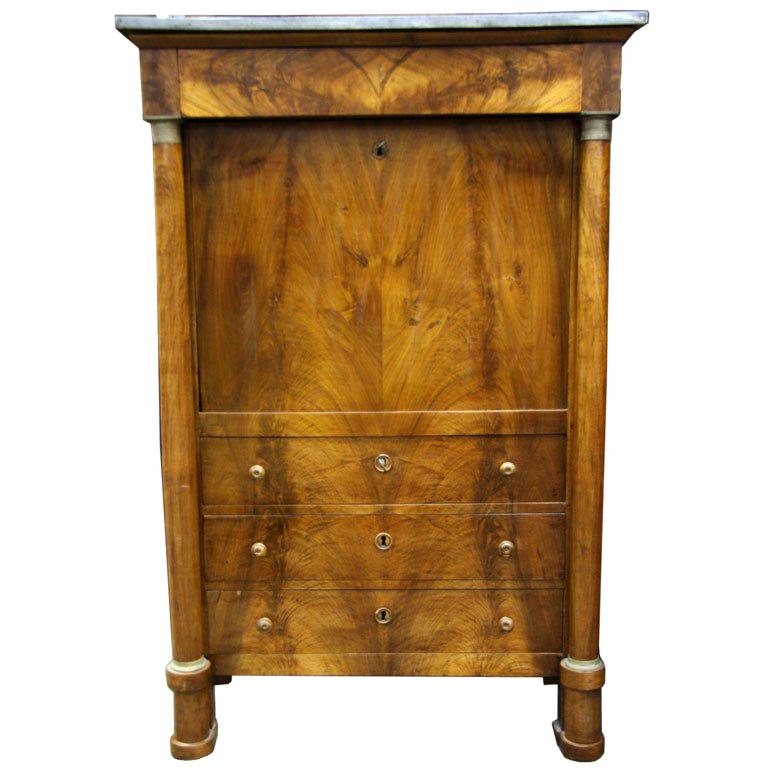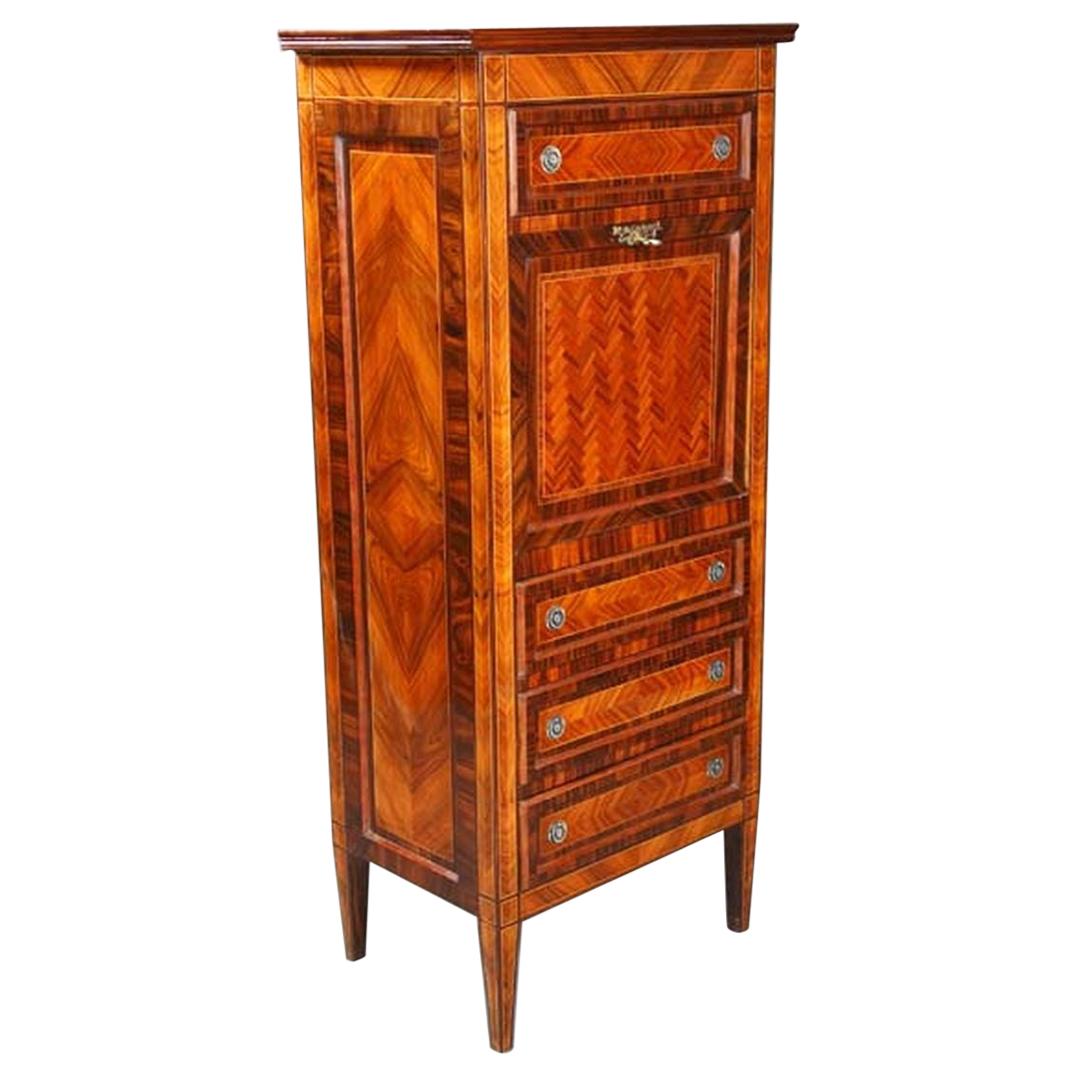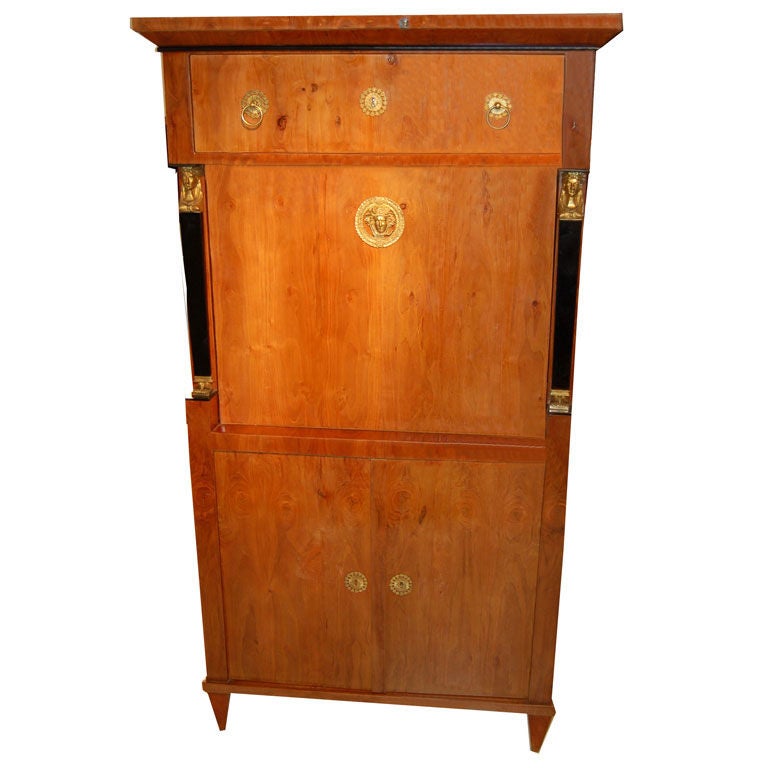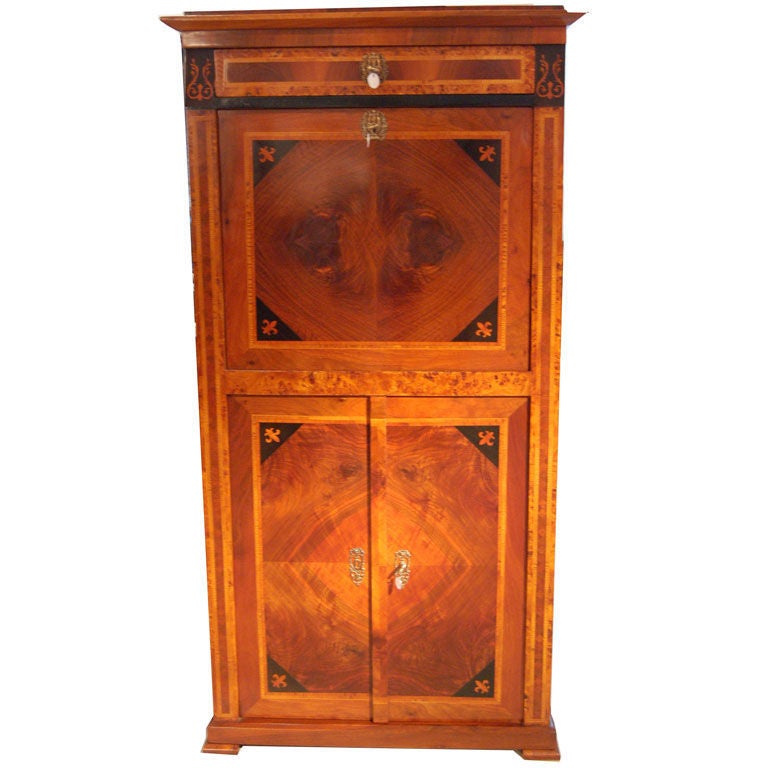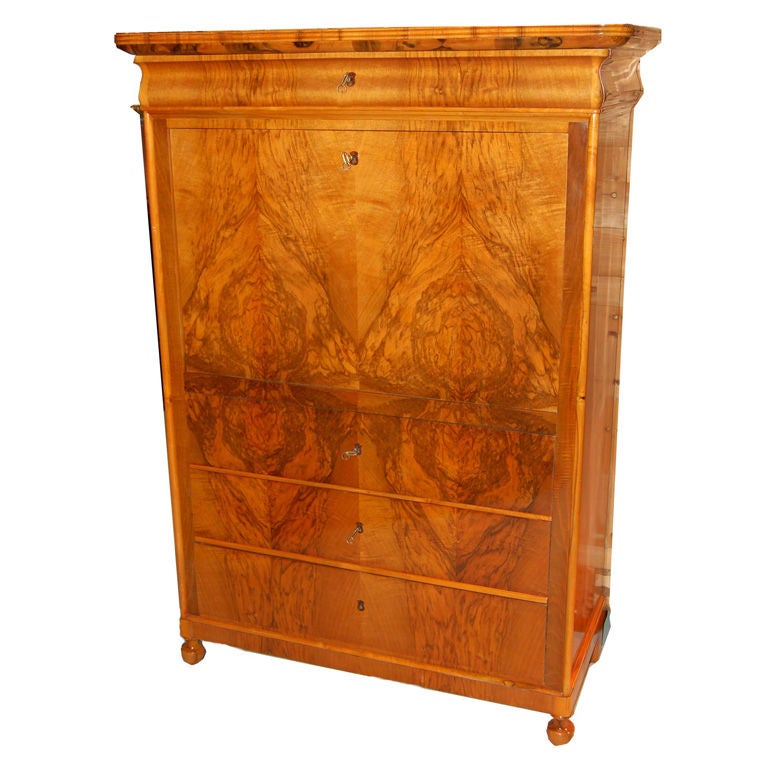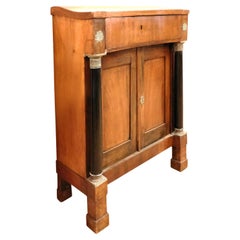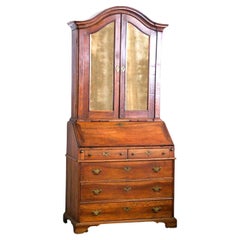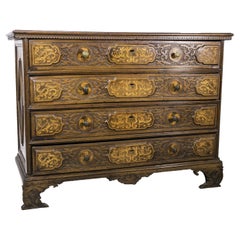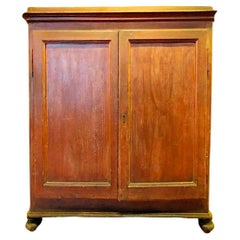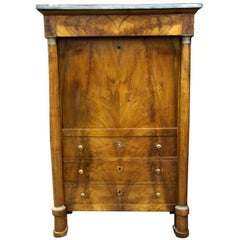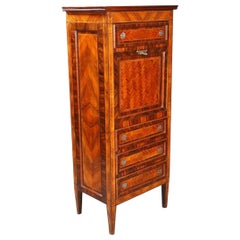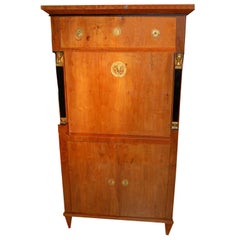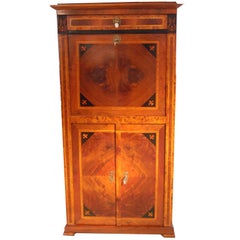Items Similar to Large and Important French Secretaire of Excellent Cabinet Making
Want more images or videos?
Request additional images or videos from the seller
1 of 8
Large and Important French Secretaire of Excellent Cabinet Making
$13,179.58
£9,811.34
€11,000
CA$18,052.73
A$20,078.58
CHF 10,484.41
MX$244,334.90
NOK 133,901.89
SEK 125,576.35
DKK 83,739.16
Shipping
Retrieving quote...The 1stDibs Promise:
Authenticity Guarantee,
Money-Back Guarantee,
24-Hour Cancellation
About the Item
Large and important French Secretaire.
Impressive piece of furniture of excellent cabinetry.
Externally, the cabinet looks like a cabinet with drawers and a large door finely inlaid in walnut and amaranth on a light background of elm wood that covers the entire cabinet.
The style is the French "cappuccino" style.
Inside there is the secretaire with the lowering door that serves as a desk.
The wood used to cover the drawers and the internal structure is ash.
Never restored, it needs small interventions of general revision and cleaning.
Provenance: France
Measures: height cm 188 width cm 105 depth cm 55
Rif. 10304.
About the Seller
No Reviews Yet
Vetted Professional Seller
Every seller passes strict standards for authenticity and reliability
Established in 1990
1stDibs seller since 2022
Typical response time: <1 hour
- ShippingRetrieving quote...Shipping from: Cesena, Italy
- Return Policy
Authenticity Guarantee
In the unlikely event there’s an issue with an item’s authenticity, contact us within 1 year for a full refund. DetailsMoney-Back Guarantee
If your item is not as described, is damaged in transit, or does not arrive, contact us within 7 days for a full refund. Details24-Hour Cancellation
You have a 24-hour grace period in which to reconsider your purchase, with no questions asked.Vetted Professional Sellers
Our world-class sellers must adhere to strict standards for service and quality, maintaining the integrity of our listings.Price-Match Guarantee
If you find that a seller listed the same item for a lower price elsewhere, we’ll match it.Trusted Global Delivery
Our best-in-class carrier network provides specialized shipping options worldwide, including custom delivery.More From This Seller
View AllAntique Italian Empire cabinet from the early 19th century
Located in Cesena, FC
Antique Italian Empire cabinet from the early 19th century
Small empire cabinet, particular cabinet from the empire era (circa 1840).
Italian, with entire column, ebonized and brass...
Category
Antique Mid-19th Century Italian Empire Sideboards
Materials
Brass
Large early 1700s Venetian walnut two-body trumeau
Located in Cesena, FC
Venetian trumeau from the 1700s
Large Venetian trumeau from the 1700s (18th century). Furniture of exceptional quality carved and in walnut wood.
Trumeau composed of two bodies, t...
Category
Antique Early 18th Century Italian Bookcases
Materials
Glass, Walnut
Spanish canterano from the early 1700s carved and rusticated
Located in Cesena, FC
Spanish canterano from the early 1700s
Walnut canter with carved decoration on the solid wood and ashlars with inlays.
Refined furniture.
Measurements: Length cm 142 - Depth cm 56 - ...
Category
Antique Early 18th Century Spanish Commodes and Chests of Drawers
Materials
Nutwood
Spruce sideboard from the late 1800s with sliding interior shelves
Located in Cesena, FC
Spruce sideboard from the late 1800s, with sliding interior shelves.
Romagnola (Italy).
Epoch : nineteenth century
To be restored, never touched.
Measurements: L. cm 128 - D. cm 76 ...
Category
Antique 1880s Italian Credenzas
Materials
Fir, Lacquer
Louis XVI lacquered sideboard cabinet 18th 18th Century
Located in Cesena, FC
Louis XVI lacquered sideboard cabinet (late 1700s early 1800s)
Marche cabinet, made of spruce lacquered with yellow ochre, usable as a closet or large sideboard.
Good condition, jus...
Category
Antique Late 18th Century Italian Louis XVI Wardrobes and Armoires
Materials
Fir
Comò intagliato Luigi XV, con due cassetti mossi e intagliati del 1700
Located in Cesena, FC
Comò intagliato Luigi XV
Epoca : Prima metà del Settecento
Comò intagliato Luigi XV, con due cassetti mossi e intagliati sul massello di Noce.
Di origine emiliana (Italia) della met...
Category
Antique 1720s Italian Louis XV Commodes and Chests of Drawers
Materials
Walnut
You May Also Like
Empire Secretaire
Located in Los Angeles, CA
Beautiful classic piece.
Category
Antique 19th Century French Secretaires
Materials
Walnut
$6,500
20th Century French Secretary in Louis Seize Style
Located in Berlin, DE
Palisander mirror veneer on solid softwood. Rectangular body on pointed legs. In the front between four drawers straight flap. Behind it rich office layout. The sides and the front a...
Category
20th Century French Secretaires
Materials
Wood
Empire Secretaire
Located in Pompano Beach, FL
Empire Secretaire made of walnut and root wood with brass capitals and hardware. Three exterior drawers. Fall front writing surface w/five interior drawers and mirrored cubby hole. ...
Category
Antique 19th Century Austrian Secretaires
$18,000 Sale Price
54% Off
Biedermeier Secretaire
Located in Pompano Beach, FL
Bureau Secretaire, Biedermeier. Walnut, birdseye, rootwood, intarsia, secret compartments.
Category
Antique 19th Century Secretaires
$11,500 Sale Price
57% Off
Biedermeier Secretaire
Located in Pompano Beach, FL
Biedermeier secretaire made of walnut and cherry with fall front writing surface, nine interior drawers, mirrored cubby hole and three exterior drawers. Germany circa 1840.
Category
Antique 19th Century Secretaires
Materials
Cherry, Walnut
$17,500 Sale Price
50% Off
19th century secretaire abattant
Located in Cheshire, GB
A French secretaire a’ abbattant, in the Louis XVI taste, the well-figured top, above conforming serpentine front over a fall front secretaire, enclosing drawers and shelf with a gre...
Category
Antique Late 19th Century French Commodes and Chests of Drawers
Materials
Wood
More Ways To Browse
Antique Painted Secretary
Antique Slant Top
Modern Secretary Desk
Bureau Secretaire
Secretary Desk Used
Antique Wood Secretary Desk
Antique Walnut Secretary
Side By Side Secretary
1930 Secretary
Writing Slant
Bookcase With Secretary
Carved Secretary Desk
Drop Down Desk
Antique Desk With Glass Cabinet
Slant Top Cabinet
19th Century French Secretary
Glass Cabinet Secretary
Antique English Secretary
